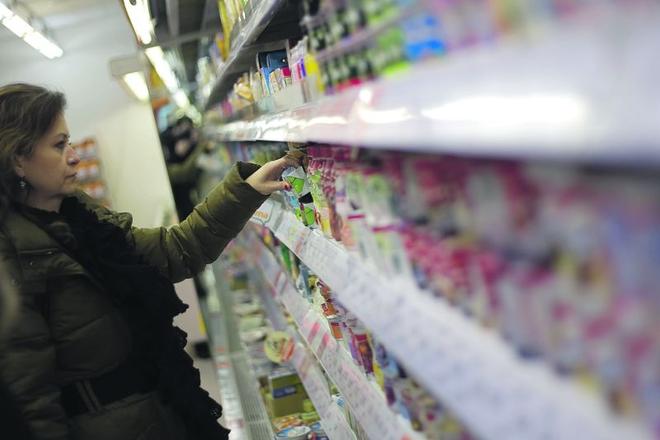MODERN food production is a complicated process which often takes place across several countries, making the identification of a single country of origin a difficult task. Current EU and Slovak legislation allows food to be declared Slovak even when its production process involves several countries and perhaps only final packaging takes place in-country. The Slovak Agriculture Ministry has therefore proposed new rules defining what the ‘Slovak’ brand applied to foods or agricultural products should mean since “often food products with the same name are of totally different quality”, according to the ministry.
Some retail chains operating in Slovakia regard the proposed edict as useful, since it will unite the rules for labelling Slovak products, the Sme daily reported. However, the Food Chamber of Slovakia (PKS), a professional organisation, called the proposal vague and discriminatory.
The ministry will allow producers to voluntarily use the label ‘Slovak food’ or ‘Slovak product’ on a product only when it meets certain criteria, as judged by a ministry-appointed commission, according to the ministry proposal.
The edict will become effective following its approval by the European Commission, which should take approximately three months from receipt of the draft, providing no other EU member country objects, Agriculture Ministry spokesperson Andrea Halászová told The Slovak Spectator.
“Above all, [the ministry wants to] improve the knowledge of customers so that they may easily distinguish food products [labelled ‘Slovak’] from other ones and help increase the employment rate in Slovak regions by increasing their consumption,” the ministry wrote in a report accompanying the edict.
Slovak customers would prefer to eat Slovak food products, according to various polls, but labelling of such items is often confusing, Halászová added. The ministry said it expects food producers to use the proposal to promote their products, she said.
The Slovak Agricultural and Food Chamber (SPPK), a non-state professional organisation established by law, still has to analyse the document but said that in principle it welcomed the ministry’s initiative to identify ‘Slovak’ food, SPPK spokesperson Stanislav Nemec told The Slovak Spectator.
However, the edict is in conflict with some EU and Slovak legislation, PKS director Jarmila Halgašová told The Slovak Spectator. She pointed to what she said are various vague definitions in the edict which may cause confusion, and added that the proposal may even discriminate against some Slovak food producers.
Both chambers’ representatives claim they support the increased promotion and sale of Slovak food in the country.
The current situation
Sellers often claim that Slovak food accounts for more than 50 percent of all the food they shift, but the statistics for the amount of Slovak food produced and exported, and the total imported, do not support such claims, Nemec said.
“If the product name bears the word ‘Slovakia’ and its variations, it does not mean that it was produced in our country,” Nemec said.
There are cases in which food is not produced in Slovakia but its production process involves a final step in Slovakia which may affect food quality, such as packing or cutting. In such cases current EU and Slovak legislation considers Slovakia to be the country of origin, the ministry’s report explains.
The ministry proposes to label food ‘Slovak’ in cases where at least 75 percent of the ingredients used for its creation come from Slovakia, although water added during production is not included in the calculation.
Also, every step of the production process is supposed to take place in Slovakia, with the exception of the production of specific foreign ingredients.
In cases where a producer is not able to produce food without using foreign main ingredients the 75-percent share is not obligatory. However, it has to be noted which ingredients do not come from Slovakia.
“For example, in the case of chocolate production use of cocoa beans, cocoa powder or cocoa butter in full amounts from a foreign country will be allowed, but other ingredients, such as sugar or milk, will have to have a domestic origin,” Halászová said.
The use of the words ‘Food produced in Slovakia’ and the Slovak flag will be allowed for products whose whole creation process is done in Slovakia but which do not meet the 75-percent threshold for ingredients.


 The proposal should help customers to recognise
Slovak products more easily. (source: SME)
The proposal should help customers to recognise
Slovak products more easily. (source: SME)